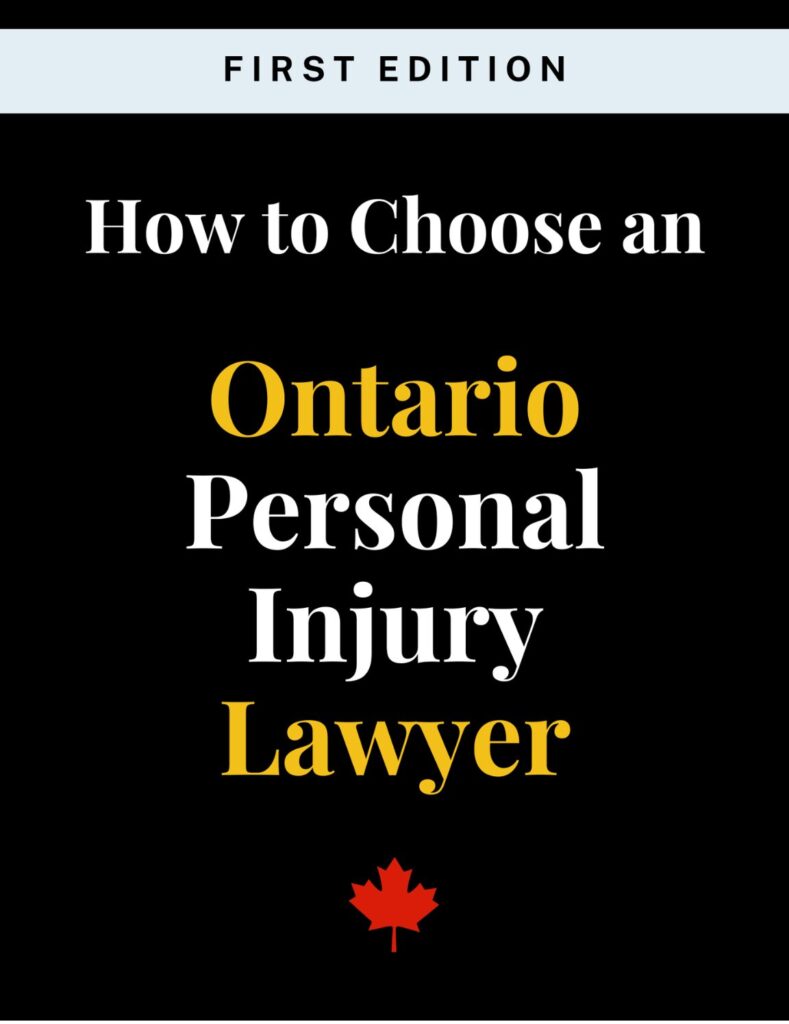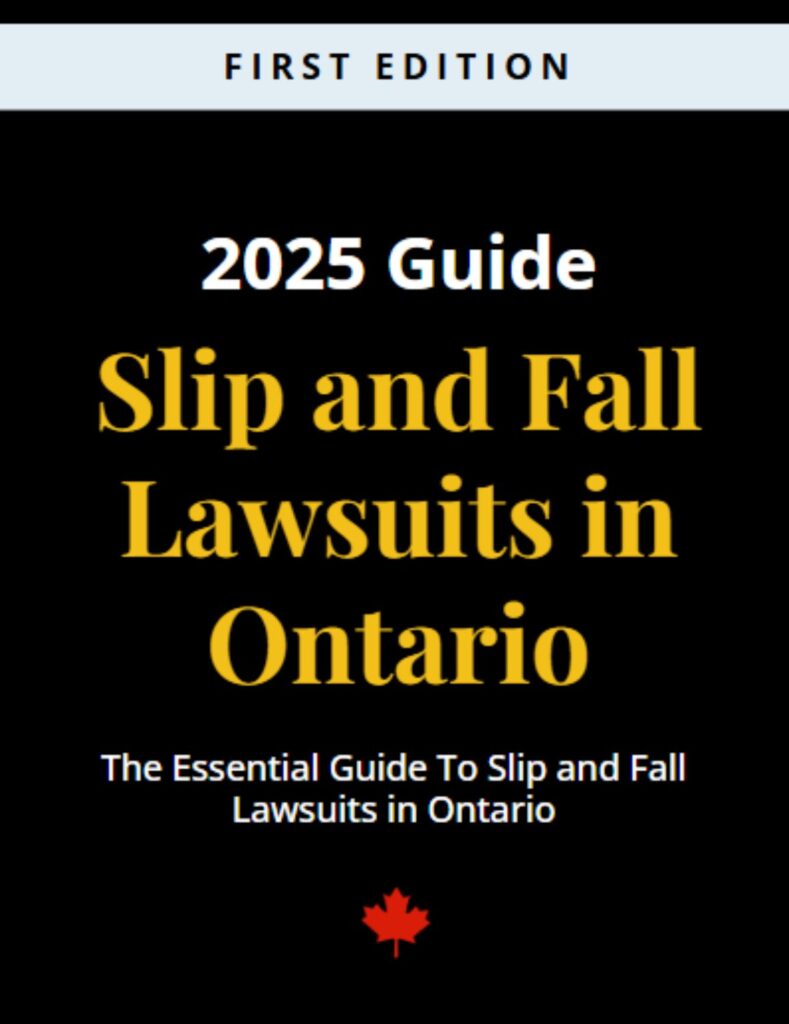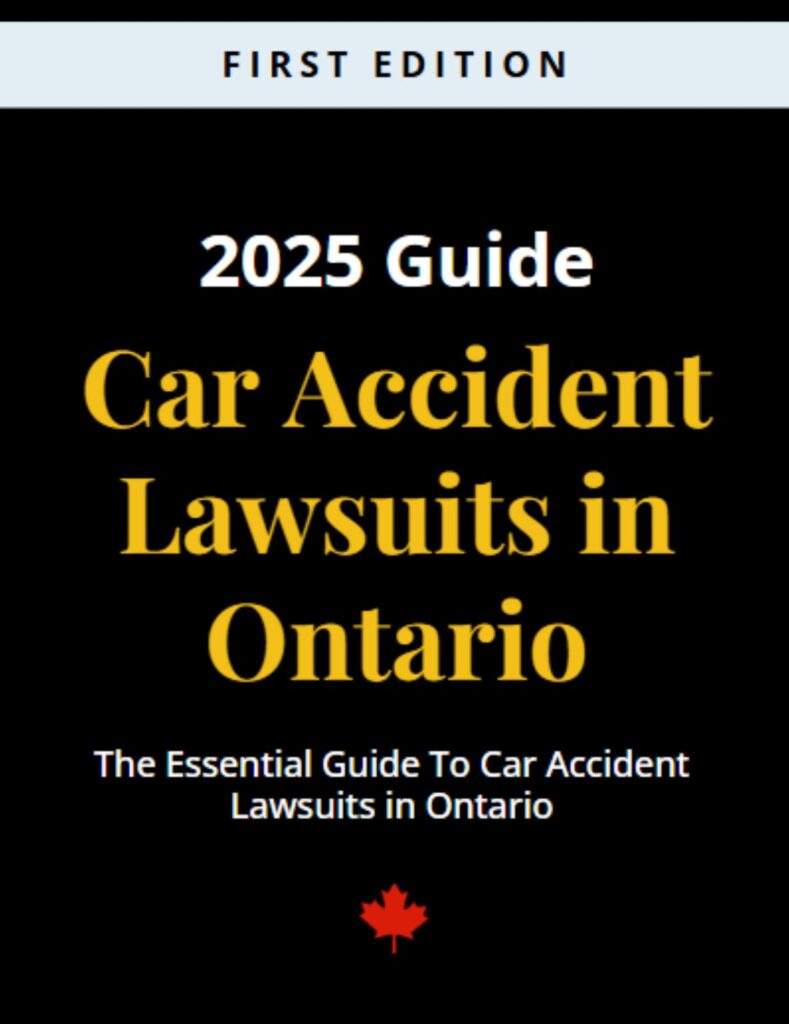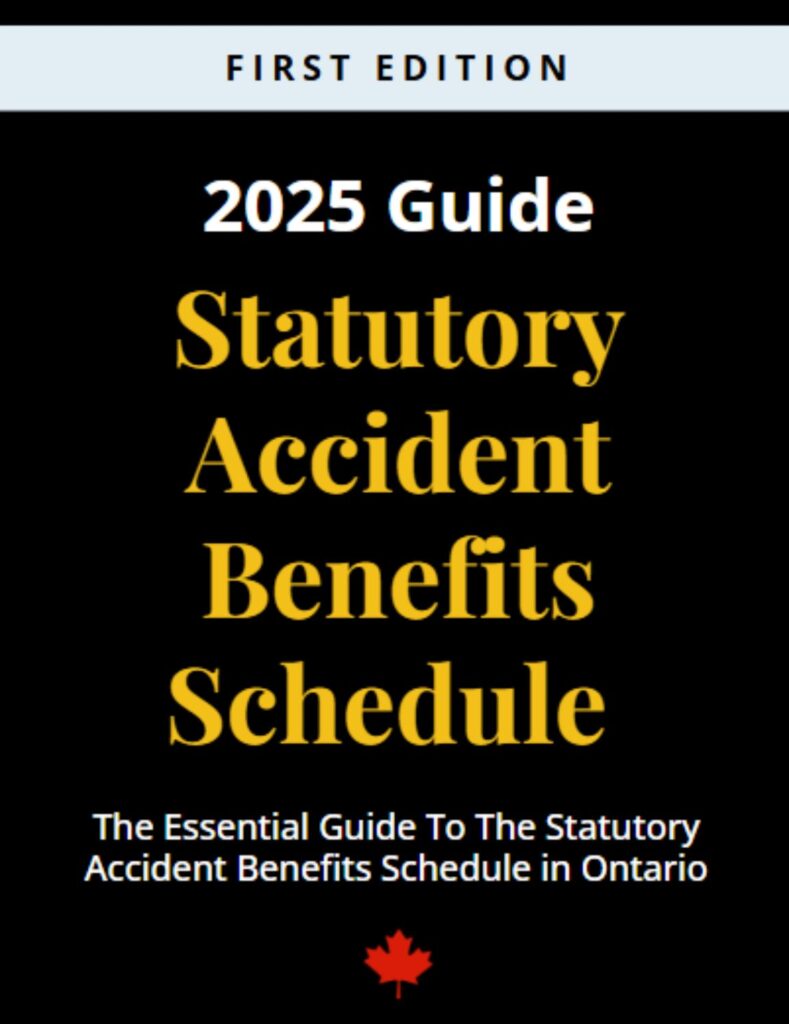Toronto Amputation Lawyer
Find out if you have a case today.
Contact our Toronto personal injury lawyers for a free consultation if you have legal questions regarding your personal injury claim.
Table of Contents
An amputation caused by an accident can be utterly devastating and can have profound effects on the victim and his or her family. Life may never be the same as it once was. Medical bills pile up. There are also significant financial costs associated with amputation injuries. If you or your loved one became an amputee due to an otherwise preventable injury or in a car or motor vehicle accident, you may be entitled to a significant amount of compensation, with the help of a Toronto amputation lawyer. To discuss your case and the steps you should take, consult with a Toronto personal injury lawyer today.
Seeking Recovery
Often, an amputee may not realize that there may be other forms of compensation available to them. If someone is hurt in a motor vehicle accident, there are significant benefits provided for under the Statutory Accident Benefits system. You can obtain, among other things, up to $1,000,000 for medical and rehabilitation treatment, $1,000,000 for attendant care, up to $100 for housekeeping and home maintenance, and even up to $400 per week for income replacement benefits. In addition, your amputation lawyer in Toronto may have a claim against the at-fault party who caused the accident for your pain and suffering, past and future income loss and even future medical treatment which will be required for the remainder of your life over and above what you will receive under the Statutory Accident Benefits system.
In other circumstances, for instance, in a trip and/or slip and fall accident, you may have a claim against the property owner or occupier who caused you to fall or injure yourself. Although there are no Statutory Accident Benefits in most trip and/or slip and fall accident claims, you are still entitled to compensation for pain and suffering, past and future income loss, and even future medical treatment which will be required for the remainder of your life. These amounts can be significant.
LET US PUT OUR EXPERTISE TO WORK FOR YOU
Tell Us What Happened
Since 1959, we’ve helped thousands of Canadians get the compensation they deserve with their personal injury claims. One of Canada’s oldest personal injury law firms, personal injury law is exclusively what we do. Book a free consultation today with our top-rated personal injury lawyers.
Our team is available 24/7 to speak with you.

Potential Damages
One of the most concerning aspects associated with any amputation, are significant financial, physical and emotional costs. Medical care costs, not covered by the Ontario Health Insurance Plan, typically start before the amputation is performed but they do not usually stop after the procedure. Ongoing medical care costs are common with amputations. Often medical care costs associated with an amputation may last for the duration of an amputee’s life. Furthermore, rehabilitation, attendant care, occupational therapy, home modifications, and/or housekeeping and home maintenance may also be required.
In many cases, an amputee will require a prosthetic in order to compensate for the loss. Prosthetics can cost from $5,000 to over $100,000 depending on the circumstances of the amputee’s case. Insurance and health care plans often times do not cover the entire costs associated with a prosthetic and of course, there are many different forms of prosthetics, some of which are covered and others not. Moreover, prosthetics are typically not a one-time occurrence. On the contrary, is it very common for an amputee to need to replace his or her prosthetic multiple times over a lifetime.
Other Damages
In addition to the medical care costs, amputees are often times faced with challenges in the workplace. Optimally, the amputation will have no affect on a worker’s ability to do their job. However, in many cases an amputee may not be able to perform the required tasks for their job due to their amputation and will require worksite accommodation and modification. In this situation, the best-case scenario is that an employer may choose to reassign the person who has had an amputation to a new job. This is another cost to amputees because this may have an impact of reducing the likelihood of advancement within their employer’s company and also may have a negative impact on their overall pay. In the worst-case scenario, a return to work may not be possible which would, unfortunately, lead to the elimination of the worker’s pay altogether.
Other financial costs that can be overlooked with amputees is the costs that are necessary to conduct their daily lives in an ordinary fashion. For example, someone who has had an amputation of one, or both, of their legs may need to use a wheelchair for part, or all, of the day. When this occurs, the amputee will need to make additions or changes to their residence in order to accommodate their wheelchair. Home modification, which can include ramps, wider halls, and lower sinks are just a few accommodations that may be necessary and can be taken into account with the help of a Toronto amputation lawyer.
Do you live in Toronto? Here’s how we can help:
Proudly Canadian
Award Winning Personal Injury Law Firm
We are proud to be one of Canada’s oldest and long-standing personal injury law firms. Since 1959, we have been providing exceptional legal services and have established ourselves as leading personal injury lawyers in the Canadian legal community. It’s not just the awards that recognize our achievements, but also the wins we’ve achieved for thousands of Canadians with their personal injury claims.
More personal injury Topics
Here’s more information on personal injury related topics that we think you might find helpful.
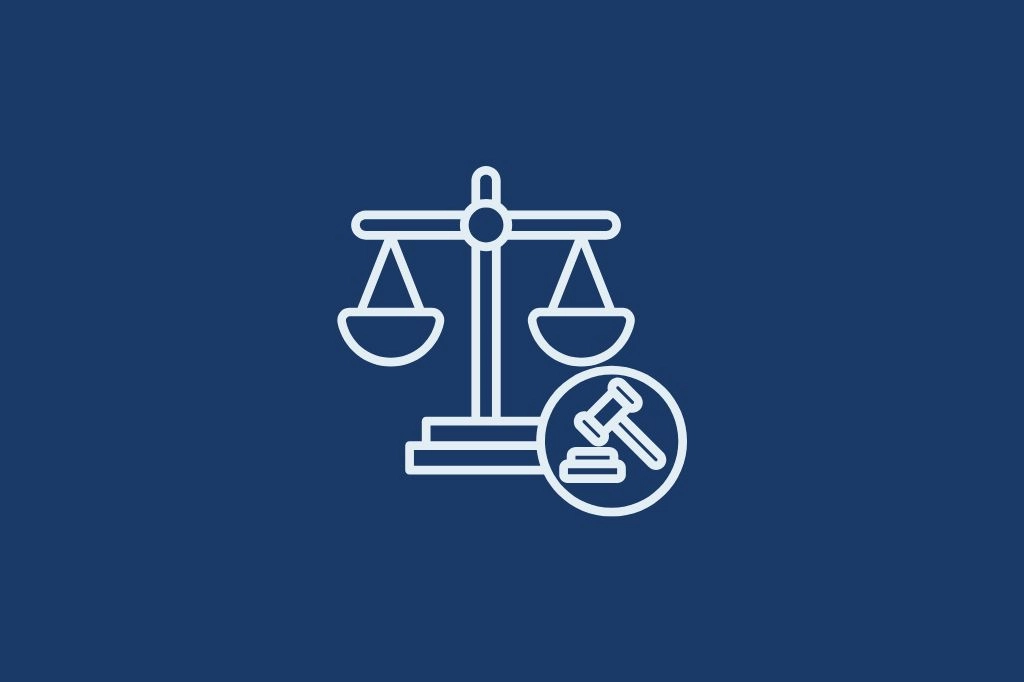
accident benefits
|
December 24, 2025
Ontario Tort Claims Explained: What They Are and How They Work
Tort claims are one of the most common ways injured people in Ontario seek compensation after an accident. While negligence claims make up the majority…

personal injury
|
November 13, 2025
Pain and Suffering Damages Calculator for Ontario (2025): Thresholds and Deductible Explained
In Ontario, pain and suffering damages (also known as non-pecuniary or general damages) compensate for human losses that don’t appear on a tangible bill. For…

personal injury
|
January 23, 2024
Injured as a Worker in Ontario? A WSIB Claim Isn’t Necessarily Your Best— Or Only— Option
In Ontario, the compensation of workers who sustain injuries or illnesses in the course of their employment is governed by the Workplace Safety and Insurance…
More personal injury Video Resources
We also have some videos on the topic of personal injury claims
personal injury FAQs
Here are some commonly asked questions for personal injury claims
How long does it typically take to resolve a personal injury case in Ontario?
Timelines vary. Some cases resolve in months, while others take years if litigation becomes necessary. Factors include injury severity, available evidence, and how insurers respond.
Do I need a lawyer if the insurance company has made an offer?
Insurance companies often make low offers hoping victims will accept quickly. A lawyer reviews your case to determine whether the offer reflects your losses.
What if I was partially at fault for the accident?
You may still have a valid claim even if you believe you were partially at fault. Ontario’s laws permit you to recover compensation in cases of shared responsibility, though the final amount may reflect your portion of fault. Never assume you cannot file a claim. Let a lawyer assess the facts first.
How long does a personal injury case typically take?
That will depend on the severity of your injuries and the insurer’s willingness to negotiate.
What costs are involved in pursuing a personal injury claim?
Preszler Injury Lawyers works on contingency, so you don’t pay legal fees unless we recover compensation for you.
Can I still claim compensation if the accident happened on someone else’s property?
Yes. Property owners must maintain safe premises. If their negligence caused your injury, you may have a valid claim.
What should I bring to my free consultation?
Bring any documents you have related to the accident. This includes police reports, your driver’s licence and insurance information, the other party’s information, photos of the scene or your injuries, and any receipts for expenses like prescriptions or therapy. The more information you provide, the better we can assess your claim.
Why is it important to document my injuries and recovery process?
Keeping a simple journal helps track how your injuries affect your daily life. Note your pain levels, medical appointments, missed work or social activities, and any challenges you face with personal care or household chores. This documentation provides powerful evidence to support your claim for pain, suffering, and loss of enjoyment of life.
INJURED IN AN ACCIDENT IN TORONTO?
Call Our Personal Injury Lawyers Now
We’re here to help 24/7
Find out if you have a personal injury case and what your next steps should be, at no cost to you.
Proudly Serving Toronto
Book Your FREE Consultation
Preszler Injury Lawyers assists clients throughout Toronto and across Canada with a wide range of legal matters.
Contact us today to get started with a free consultation.




